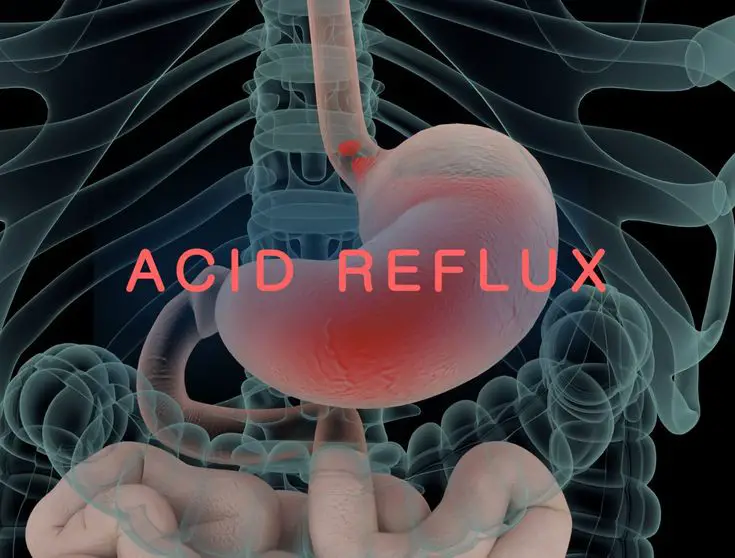It's important to understand acid reflux and navigating the general digestive health.
Stomach acid or gastric acid, is a watery, colorless fluid that’s produced by your stomach’s lining.It’s highly acidic and helps break down food for easier digestion. This helps your body absorb nutrients more easily as food moves through your digestive tract.In order to break down everything from meat to tough, fibrous plants, stomach acid has to be highly acidic.
Your body is designed to handle average levels of stomach acid so that it doesn’t cause you any illness or health complications.
However, those systems may not always work the way they are supposed to. Having gastric juices with low or high levels of acidity can cause other health problems.
Today we find out how strong stomach acid is and what happens when your body makes stomach acid that’s either too strong or too weak.
How strong is stomach acid?
Stomach acid, scientifically known as gastric acid, is a powerful concoction of hydrochloric acid (HCl), potassium chloride (KCl), and sodium chloride (NaCl) produced by the cells in the lining of the stomach. It plays a crucial role in the digestive process, breaking down food into smaller particles for absorption of nutrients. But just how strong is stomach acid?
With a pH level that can plummet as low as 1.5 to 3.5, stomach acid is incredibly acidic, making it one of the strongest acids produced in the human body. To put this into perspective, battery acid, known for its corrosive properties, typically has a pH of around 0 to 1, making it slightly stronger than stomach acid. This acidity is necessary for the digestion of food and acts as a potent defense mechanism against harmful pathogens that may enter the digestive system through food or drink.
The strength of stomach acid is essential for breaking down proteins, activating digestive enzymes, and facilitating the absorption of essential nutrients like iron and calcium. However, this potency also means that stomach acid can cause damage if it comes into contact with sensitive tissues outside of the stomach.
The stomach is lined with a protective mucous membrane that prevents the acid from damaging its own tissues. This mucous layer acts as a barrier, shielding the stomach lining from the corrosive effects of the acid. However, if the mucous layer is compromised or if stomach acid is produced in excessive amounts, it can lead to conditions like gastric ulcers or gastroesophageal reflux disease (GERD).
Stomach acid's strength is particularly evident in its ability to dissolve various substances. For example, it can easily break down proteins into smaller peptides and amino acids, a crucial step in the digestion process. It can also dissolve certain metals, such as zinc and aluminum, albeit at a slower rate compared to its effect on food.
In addition to its digestive functions, stomach acid serves as a crucial part of the body's immune defense system. It helps kill ingested bacteria and other pathogens, reducing the risk of foodborne illnesses. This antimicrobial action is especially important in preventing infections caused by pathogens like Helicobacter pylori, which can colonize the stomach and lead to conditions like gastritis and peptic ulcers.
While stomach acid is incredibly strong, the body has mechanisms in place to regulate its production and maintain a delicate balance. Hormones like gastrin and histamine stimulate acid secretion, while other factors such as stress, diet, and certain medications can influence its production.
So this is one of the strongest acids produced by the human body, with a pH level that can rival that of battery acid. Its potency is essential for the digestion of food, nutrient absorption, and protection against harmful pathogens. However, maintaining the delicate balance of stomach acid production is crucial for overall digestive health and well-being.
Signs of fluctuated levels of HCL
Some signs of fluctuated levels of stomach acid include the following.
Your body is designed to handle average levels of stomach acid so that it doesn’t cause you any illness or health complications.
However, those systems may not always work the way they are supposed to. Having gastric juices with low or high levels of acidity can cause other health problems.
Today we find out how strong stomach acid is and what happens when your body makes stomach acid that’s either too strong or too weak.
How strong is stomach acid?
Stomach acid, scientifically known as gastric acid, is a powerful concoction of hydrochloric acid (HCl), potassium chloride (KCl), and sodium chloride (NaCl) produced by the cells in the lining of the stomach. It plays a crucial role in the digestive process, breaking down food into smaller particles for absorption of nutrients. But just how strong is stomach acid?
With a pH level that can plummet as low as 1.5 to 3.5, stomach acid is incredibly acidic, making it one of the strongest acids produced in the human body. To put this into perspective, battery acid, known for its corrosive properties, typically has a pH of around 0 to 1, making it slightly stronger than stomach acid. This acidity is necessary for the digestion of food and acts as a potent defense mechanism against harmful pathogens that may enter the digestive system through food or drink.
The strength of stomach acid is essential for breaking down proteins, activating digestive enzymes, and facilitating the absorption of essential nutrients like iron and calcium. However, this potency also means that stomach acid can cause damage if it comes into contact with sensitive tissues outside of the stomach.
The stomach is lined with a protective mucous membrane that prevents the acid from damaging its own tissues. This mucous layer acts as a barrier, shielding the stomach lining from the corrosive effects of the acid. However, if the mucous layer is compromised or if stomach acid is produced in excessive amounts, it can lead to conditions like gastric ulcers or gastroesophageal reflux disease (GERD).
Stomach acid's strength is particularly evident in its ability to dissolve various substances. For example, it can easily break down proteins into smaller peptides and amino acids, a crucial step in the digestion process. It can also dissolve certain metals, such as zinc and aluminum, albeit at a slower rate compared to its effect on food.
In addition to its digestive functions, stomach acid serves as a crucial part of the body's immune defense system. It helps kill ingested bacteria and other pathogens, reducing the risk of foodborne illnesses. This antimicrobial action is especially important in preventing infections caused by pathogens like Helicobacter pylori, which can colonize the stomach and lead to conditions like gastritis and peptic ulcers.
While stomach acid is incredibly strong, the body has mechanisms in place to regulate its production and maintain a delicate balance. Hormones like gastrin and histamine stimulate acid secretion, while other factors such as stress, diet, and certain medications can influence its production.
So this is one of the strongest acids produced by the human body, with a pH level that can rival that of battery acid. Its potency is essential for the digestion of food, nutrient absorption, and protection against harmful pathogens. However, maintaining the delicate balance of stomach acid production is crucial for overall digestive health and well-being.
Signs of fluctuated levels of HCL
Some signs of fluctuated levels of stomach acid include the following.
- Bloating or burping
- Nausea with vomiting
- Diarrhoea
- Stomach discomfort that gets worse on an empty stomach.
Tips for Optimum Acid Production
Dietary and lifestyle changes may help those with high acid production. These include;
1. Eating smaller meals throughout the day rather than large, calorie-dense meals
2. Avoiding lying down for 2 to 3 hours after eating and avoid eating 2 to 3 hours before bed
3. Avoiding wearing tight clothing that puts pressure on your stomach
4. Increasing the amount of fiber in your diet
5. Reducing the number of calories you eat per meal
6. Avoiding smoking, if you smoke
High levels of stomach acid can lead to heartburn, acid reflux, and ulcers. Low levels of stomach acid may impair your ability to digest food.
Seek medical attention if you’re showing signs of low or high levels of acid. Both of these can be problematic if they’re chronic and not treated properly.
A healthcare professional can review your symptoms and decide the best treatment for you. In some cases, they may look for underlying health issues, like an infection, that could be contributing to your altered acid levels.


























